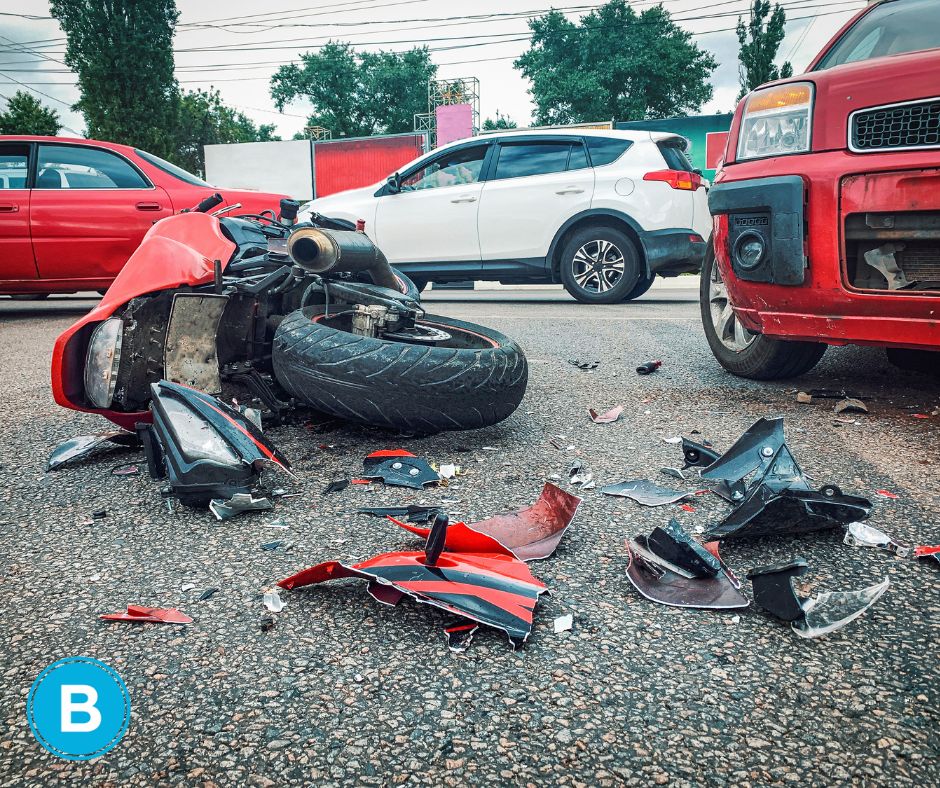
If you live in Tampa Bay, you probably hate traffic as much as we do. The delays, the stress, and burning your fuel or battery needlessly are frustrating, to say the least. For local motorcyclists though, traffic is especially annoying. That’s why “lane splitting” is becoming an issue on Hillsborough County’s congested highways and city streets. This dangerous practice might seem commonplace, but is it a smart choice?
We’re here to remind bikers that you’re not invincible and explain why lane splitting is never an option.
What is lane splitting?
Lane splitting, also known as lane sharing, white lining, or stripe riding, is when a motorcyclist cuts between two lanes of cars to move through traffic more quickly. Many bikers use this shortcut to bypass miles of traffic on busy interstates like I-75 and I-4, as well as shorten their commute time on frequently backed-up roads like:
- Westshore Blvd.
- Dale Mabry Highway
- Himes Ave.
- Kennedy Blvd.
- Florida Ave.
- I-275
- CR 581 (from Amberly Dr. to Tampa Palms)
- MLK Jr. Blvd.
and SO many more. When rush hour hits and traffic begins to accumulate, lane splitting becomes an issue.
Why is lane splitting so dangerous?
Lane splitting might seem innocent, but it’s proven deadly on more than one occasion. Common accidents you might experience when lane sharing could include:
Colliding with cars suddenly changing lanes
In this scenario, a biker darting between two lanes of traffic has little or no space for reaction. If a car suddenly jets over to change lanes, the biker will likely be hit in the process. If they miss

“White lining” is a dangerous (and illegal) practice for Florida motorcyclists!
the car in the initial collision, a secondary hit is likely due to the close quarters of surrounding vehicles.
Getting crushed between two cars
When driving between two lanes of traffic, a biker is susceptible to being crushed between two cars when one (or both) drives too close to the line.
Hitting debris
On busy roads, debris from vehicles, litter, etc. usually accumulates on the shoulder, in the median, or in the less-traveled spaces between lanes…aka, the “white line” of the road. A biker who is white-lining between two busy lanes of traffic will have nowhere to go if they come up on debris or garbage, and could hit the object(s) causing them to crash as a result.
A local Florida motorcyclist spoke with Bay News 9 about the unfortunate trend and is concerned for riders’ safety. Bikers in Florida already have to worry about drivers not paying attention behind the wheel or forgetting to check blind spots. Lane sharing is a dangerous gamble to make. With 60 years of biking under his belt, this rider is spreading the message that motorcyclists aren’t invincible. He also says he is frequently asked about the legality of lane sharing in Florida.
That’s a great question.
Is lane splitting legal in Florida?
No! While some bikers would like to have it changed, as of now lane sharing is still illegal in Florida. Our state’s statute says specifically of lane sharing:
No person shall operate a motorcycle between lanes of traffic or between adjacent lines or rows of vehicles.
2023 Florida Statute 316.209.3
That’s pretty clear, isn’t it? Many bikers throughout Tampa Bay though aren’t aware of this law and continue to lane share as if it’s permissible on Florida’s highways. This is a big problem for tourists, as other states allow lane-sharing. California, for example, lets motorcyclists travel between lanes of traffic as long as they don’t break the posted speed limits. If you come to Florida from an area that allows lane splitting, you could end up with a ticket, a fine, or worse, an accident.
The best rule of thumb? When in doubt, stay put and don’t head toward that white line. Following the law and making smart choices on your bike is how you arrive alive.
I was in a motorcycle accident in Tampa…now what?
When injured in an accident on your motorcycle, it’s so important to have an experienced lawyer on your case. Unfortunately, prejudice against motorcyclists is real, thanks to a few bikers making poor decisions like lane splitting. However, as some of Tampa’s most trusted motorcycle lawyers, we know that most bikers are responsible, careful, and conscientious when on the road. Oftentimes, motorcycle accidents are actually due to the other party failing to take proper precautions. Distracted driving, failing to look before changing lanes, speeding, running red lights…all of these could contribute to a serious accident with a biker. Sadly, insurance companies will frequently blame the biker automatically, seeking to “get out” of paying what is owed for injuries and damages. We don’t let that happen to you.
Brooks Law Group represents motorcyclists throughout Central Florida. We take it personally when a biker is injured on our roads, and understand the heartache and fear that come with the injuries, trauma, and lost wages following these accidents. We make sure all appropriate parties are held accountable, and that you get the compensation you deserve to heal and move forward following your motorcycle accident. Our no-risk approach means we meet with you for free to discuss your case. If you choose us to represent you, you don’t pay unless we win. We truly are committed to helping our clients and getting the justice and support they deserve. Contact us to book your case review!
If you are the victim of a motorcycle accident, you don’t have to face this alone. When you don’t know where to turn next, know you can always Look to Brooks.













